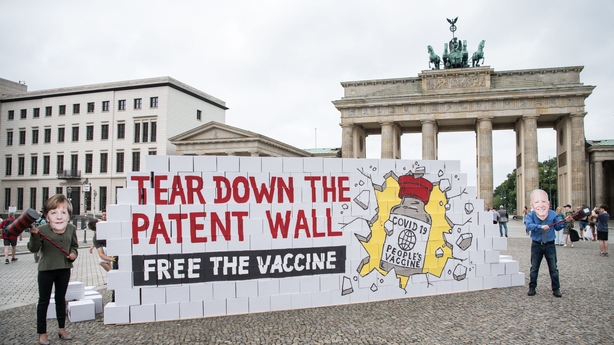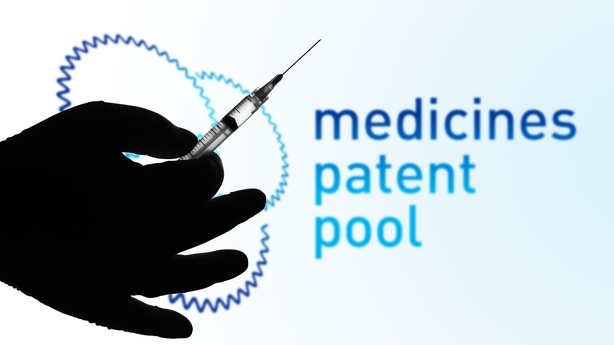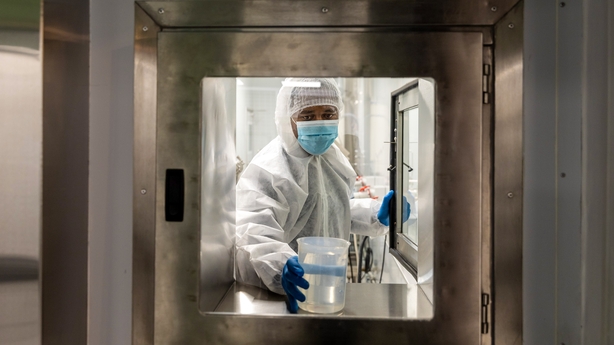Over a year into global Covid-19 vaccination efforts, the question of whether vaccine formulas ought to be freely available is still unresolved - and undersupplied countries are turning to workarounds.
Proponents of waiving intellectual property rights owned by pharma giants such as Pfizer and Moderna argue that freeing the technology would lead to faster local production of live-saving vaccines.
But the industry retorts that allowing their inventions to be copied without compensation would discourage medical innovation.
As the Covax vaccine-sharing scheme continues to supply vaccines to undersupplied areas, experts are looking at licensing, technology-sharing and other ways to jumpstart vaccine development in low- and middle-income settings.
The argument in favour of waivers says Covid-19 jabs are a public good that should be available to everyone.
Red Cross president Francesco Rocca told AFP in December that suspending intellectual property rights for Covid-19 vaccines in order to boost production was a "moral imperative".
But for pharmaceutical companies, the major drawback of patent waivers is the loss of revenue that would result from their invention being reproduced without compensation.
It can take many years and heavy investments to develop new medicines and a patent on their discoveries ensures they'll recoup the cost.
"The central idea is to encourage innovation," Strasbourg-based intellectual property rights specialist Yann Basire told AFP.

Former German chancellor Angela Merkel referenced this idea when she opposed waiving vaccine patents in May 2021.
"I think that we need the creativity and the power of innovation of companies, and to me, that includes patent protection," she said, adding that without such incentive firms might not be so quick to develop jabs adapted to variants.
Paris-based lawyer Cyra Nargolwalla says another hurdle is the complexity of vaccine intellectual property protection, which sometimes can mean a combination of patents for technologies from different firms.
"If you lift all these patents it may not only affect vaccines but also other products that have nothing to do with Covid," she said.
Pharmaceutical industry leaders also insist patents are far from being the most urgent issue holding up the vaccine supply in low- and middle- income countries.
Instead they point to global shortages of vaccine components and ingredients and insufficient infrastructure as the major hurdles.

But Charles Gore of the Medicines Patent Pool says that while he acknowledges patents aren't the only obstacle stopping developing countries producing vaccines, "we do think that there are manufacturers in many countries that are able to make them".
The MPP, which was established in 2010 to improve access to HIV medications in low- and middle-income countries, has succeeded in licensing Covid treatments for cheaper production.
In November it signed major deals for an antibody test and for Pfizer's oral antiviral pill to be produced more cheaply, and Gore said they are in talks with a few vaccine developers.
"We think that a licensing model, similar to the one we have applied for medicines, could also work for vaccines," Gore said.
The MPP declined to weigh in on whether waiving all vaccine patents is still a good idea.
Instead, Gore pointed to another approach: forging ahead with publicly available knowledge on current jabs in lieu of an exact recipe.
To that end the MPP joined the WHO to support the creation of a technology and training transfer hub for mRNA technology in South Africa.

Researchers at the Afrigen development facility in Cape Town are reverse-engineering a jab based on the Moderna vaccine.
Their aim is to produce a version that can be kept at warmer temperatures than the original jab, which requires expensive -25°C to -15°C refrigeration.
Research is still in the early stages and the hope is for the MPP to reach a licensing agreement with Moderna before the jab is ready for clinical trials, currently projected for some time in 2023.
"Through the carefully selected spokes that will receive the technology transfer... we are confident that vaccine manufacturers in LMICs will be able to make vaccines and supply their region," Gore said.

